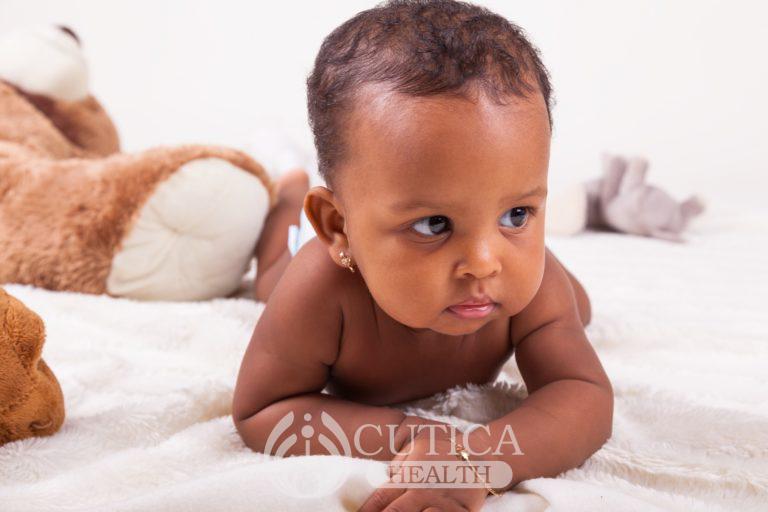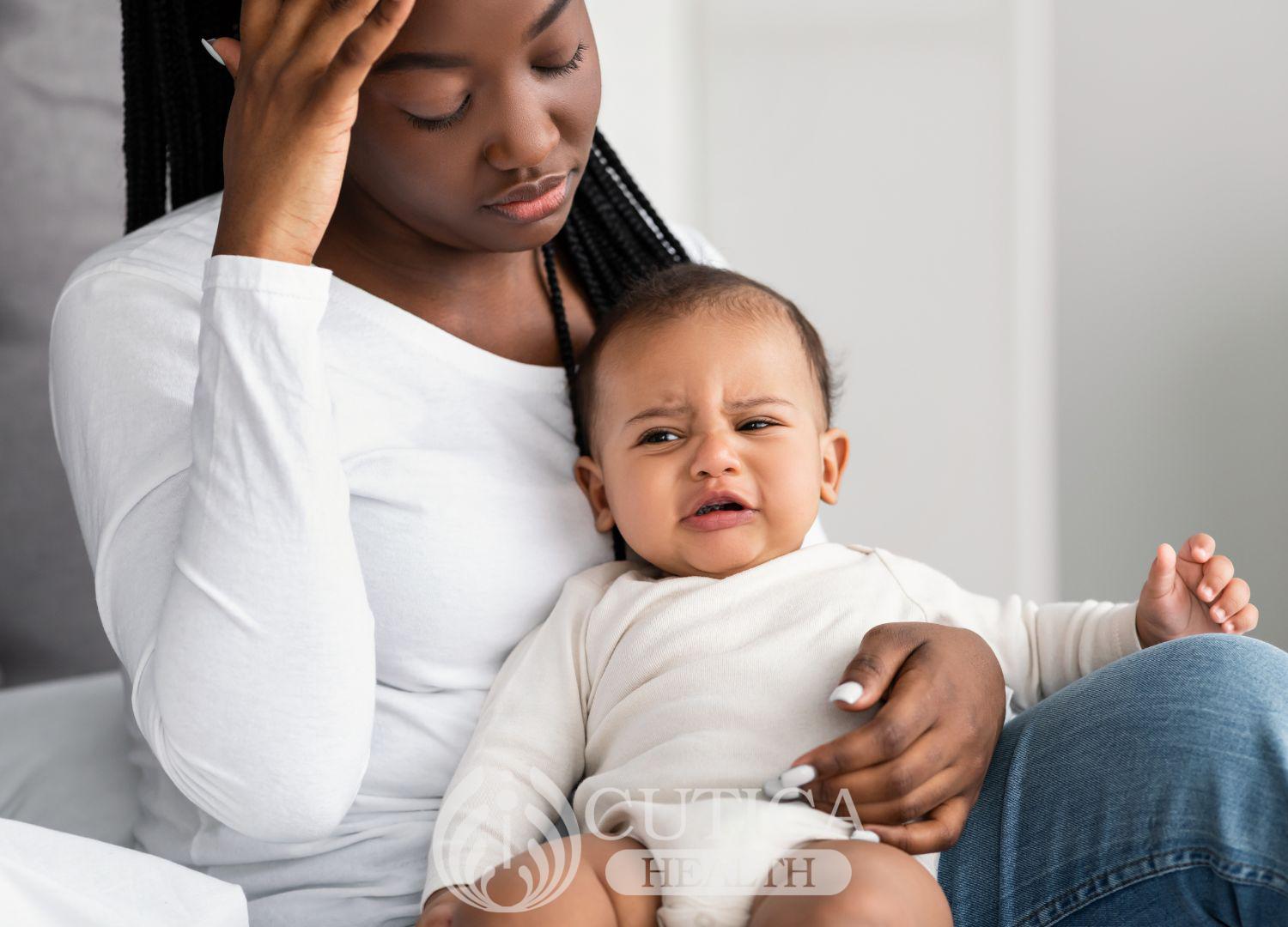
How does eczema present?

One in five children suffers from eczema during their infant years and their early childhood. You are most likely to see the first appearance of symptoms when your child is under the age of five. This entails a rash on the cheeks, forehead or the scalp and may result into a spread on the elbows, knees, wrist and neck, but never usually affects the diaper area. The affected areas will have dry itchy skin that appears red and cracked and may even bleed when irritated. Eczema will appear like creases around the joint areas such as elbows and knees. There is a higher likelihood of your baby developing eczema if you or your partner suffered from it in the past.
What causes eczema in my baby?
You’ll probably hear the big name “atopic dermatitis” which just means your baby’s immune system has a tendency to react to substances in the environment that should otherwise be harmless in nature, hence the word “atopic”. This means that though the cause is not exactly known, it’s mostly related to allergic reactions. It’s interesting to note that studies have indicated that a larger population of kids suffering from eczema are in modern urban environments, probably due to the harsh chemicals around such an environment that can cause the condition to flare up. It could also be that your baby is in a highly hygienic home which means your baby’s immune system is very much guarded hence overreacting to any harmless substance when the environment changes. The exact cause is however still unknown.
What do I apply to stop the itch?
If you suspect your baby is developing eczema, it is best to contact your physician before taking any action. There is however no designated cure for eczema. The doctor will recommend different treatments depending on the severity of the condition, age and location of the rash. He or she may prescribe a topical cream/ointment together with oral medication or just stick to the topicals. Among them include:

- Moisturizers – dry skin should be moisturized two to three times a day after bath. Ointments such as petroleum jellies are best and creams that contain a lot of oil as well as lotions that have a large moisturizer content.
- Topical corticosteroids – these are steroid creams or ointments that help reduce inflammation. They vary in strength and so it’s advisable to consult with your physician to get the best fit for your baby
- Oral medications – your doctor can recommend oral anti-inflammatory medicines as well as antihistamines to help ease the itch. Antibiotics will only be prescribed if the baby develops a bacterial infection.
- Phototherapy – this involves the use of ultraviolet light and will only be recommended by skin specialist for severe cases
- Use of wet wraps – you can wrap your baby with damp clothes on affected areas of the skin
Eczema home management solutions
Help manage your baby’s eczema by keeping their skin moist at all times. Ensure that your baby is taking short baths with warm water using mild soaps. Oatmeal related products have also been used to help control the itch, but it’s best to run by your doctor before introducing them to your baby. Make sure that your baby’s clothes are soft to avoid them triggering the condition. Wool and polyester may be harsh fabric on your baby. Lastly, get rid of any allergens in your household such as smoke and ensure your baby is comfortable, well hydrated and happy. Ensure that you have your doctor on speed dial if you notice any fever or pus developing.
Good news is, eczema in babies improves as the child grows older, typically from the age of 5, and can even completely go away.












